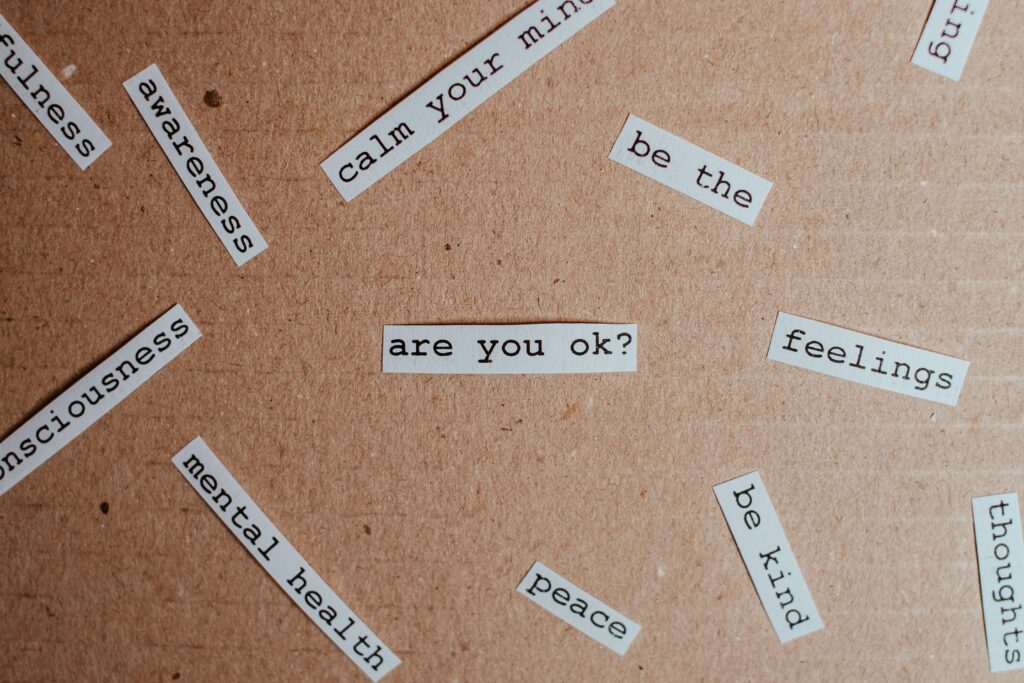“Mental wellbeing is a fundamental aspect of overall health, enabling us to lead a more balanced and fulfilling life. When our minds are in a healthy state, we can approach life’s challenges with clarity, resilience, and emotional stability. A well-maintained psychological state also fosters better decision-making, stronger relationships, and greater satisfaction in daily activities. Essential factors such as stress management, positive thinking, physical health, and social connections all contribute to supporting mental health. In this guide, we’ll explore practical, effective strategies that can help you nurture your emotional wellbeing, manage stress, and cultivate a positive outlook on life.”
Key Strategies to Improve Mental Wellbeing

- Stress Management: Reducing the Impact of Stress on Your Life
Stress is an inevitable part of life, but when not managed properly, it can take a toll on both mental and physical health. Chronic stress has been linked to various mental health issues, including anxiety and depression. Practicing stress management techniques can significantly improve your emotional state and overall wellbeing. Methods such as mindfulness, meditation, and deep breathing exercises have been proven to reduce anxiety, enhance focus, and promote relaxation. These practices help calm the mind, regulate emotions, and create a sense of inner peace amidst life’s pressures.
- Tips for Stress Management: Try deep breathing exercises, practice mindfulness daily, and take time to relax in a quiet space. You can also explore guided meditation apps or yoga routines to help alleviate tension and anxiety.
- Healthy Sleep Habits: The Foundation of Mental Health
Quality sleep is fundamental for mental wellbeing. Sleep not only helps the brain repair and rejuvenate itself but also affects mood, cognitive function, and emotional regulation. Inadequate or poor-quality sleep can lead to irritability, reduced concentration, and emotional instability. To improve your mental wellbeing, prioritize healthy sleep habits. Establishing a regular sleep routine and creating a calming bedtime environment can greatly enhance your rest.
- Sleep Tips: Aim for 7-9 hours of sleep per night. Avoid caffeine and heavy meals close to bedtime, and limit screen time at least one hour before going to sleep. Creating a peaceful, dark room environment will also help improve sleep quality.
- Regular Physical Activity: Boosting Endorphins and Reducing Stress
Physical activity is not only beneficial for your body but also for your mind. Exercise releases endorphins, the brain’s natural mood enhancers, which can help reduce stress and improve overall mental health. Activities such as walking, jogging, yoga, or dancing can help you feel more energized, improve self-esteem, and foster a sense of accomplishment. Engaging in regular physical activity also encourages better sleep and strengthens the immune system.
- Physical Activity Tips: Aim for at least 30 minutes of moderate activity most days of the week. Start with simple activities like walking or cycling, and gradually increase intensity. Explore fitness classes, yoga, or team sports to make exercise more enjoyable.
- Social Connection: Strengthening Emotional Support Networks
Humans are social creatures, and connecting with others is vital for emotional wellbeing. Building and maintaining strong relationships with friends, family, and peers provides essential emotional support, reduces feelings of loneliness, and promotes a sense of belonging. Positive social interactions improve mood, encourage empathy, and create a network of people who can help you cope with difficult times. Quality social connections can buffer the negative effects of stress and even help you develop coping strategies.
- Social Connection Tips: Make an effort to stay in touch with loved ones through calls, texts, or video chats. Engage in social activities or community groups that interest you. Practicing active listening and showing empathy can strengthen your relationships and make them more meaningful.
- Balanced Diet: Nourishing Your Mind and Body
What you eat plays a significant role in how you feel emotionally and mentally. A well-balanced diet provides the necessary nutrients to support brain function, enhance mood, and regulate emotional responses. Foods rich in omega-3 fatty acids, vitamins, and antioxidants can improve cognitive function and emotional stability. Incorporating a variety of fruits, vegetables, lean proteins, and whole grains into your diet can help you feel more energized and emotionally balanced.
- Dietary Tips: Focus on a balanced, nutrient-dense diet with plenty of fruits, vegetables, and healthy fats. Include foods high in omega-3 fatty acids, like salmon, walnuts, and flaxseeds. Avoid excessive sugar and processed foods, which can have a negative impact on mood and energy levels.
- Managing Negative Thoughts: Cultivating a Positive Mindset
Negative thinking patterns can significantly affect your mental health, contributing to feelings of anxiety, depression, and low self-esteem. Learning to manage and challenge negative thoughts is a powerful way to improve emotional resilience. By practicing gratitude, focusing on positive aspects of life, and using cognitive-behavioral techniques, you can retrain your brain to focus on the present moment and adopt a more optimistic outlook. Writing in a journal, practicing positive affirmations, and seeking professional therapy can also be useful tools for reshaping thought patterns.
- Tips for Managing Negative Thoughts: Practice daily gratitude by listing three things you’re thankful for. Write down your thoughts and challenge any irrational or negative beliefs. Consider seeking therapy or counseling for additional support in managing difficult emotions.
Activities to Avoid for Better Mental Health

While engaging in healthy activities is crucial for mental wellbeing, there are also certain behaviors and habits that should be avoided, as they can negatively impact your mental health:
- Excessive Screen Time: Prolonged exposure to screens, especially before bed, can interfere with sleep, increase stress, and contribute to feelings of isolation or anxiety. Try to limit screen time, especially on social media, and take breaks to connect with others offline.
- Substance Abuse: Excessive alcohol consumption, smoking, or the use of recreational drugs can harm both your physical and mental health. These substances can exacerbate feelings of stress, anxiety, and depression. Instead, focus on healthier coping mechanisms like exercise or mindfulness.
- Negative Social Interactions: Engaging in toxic or overly stressful relationships can affect your mental health. Surround yourself with people who are supportive, positive, and help you feel connected and valued. Avoid environments or relationships that drain your energy or increase your stress.
- Overworking and Burnout: Constantly pushing yourself to work without taking breaks can lead to burnout and mental exhaustion. It’s important to find a balance between work and relaxation. Make time for self-care, hobbies, and quality time with loved ones to recharge your mind and body.
- Ignoring Mental Health Issues: Avoid brushing off mental health problems or neglecting to seek help when needed. If you’re feeling overwhelmed or struggling with anxiety, depression, or other mental health issues, reach out to a therapist or counselor. Ignoring these concerns can lead to worsening symptoms and reduced quality of life.
Mental wellbeing is integral to overall health and quality of life. By incorporating strategies such as stress management, healthy sleep, regular physical activity, social connection, balanced nutrition, and positive thinking, you can improve your mental state and achieve a more balanced, resilient mindset. Prioritizing mental health allows you to handle life’s challenges with greater confidence, emotional stability, and happiness. Start implementing these strategies today, and take the first step toward a healthier, more fulfilling life.





